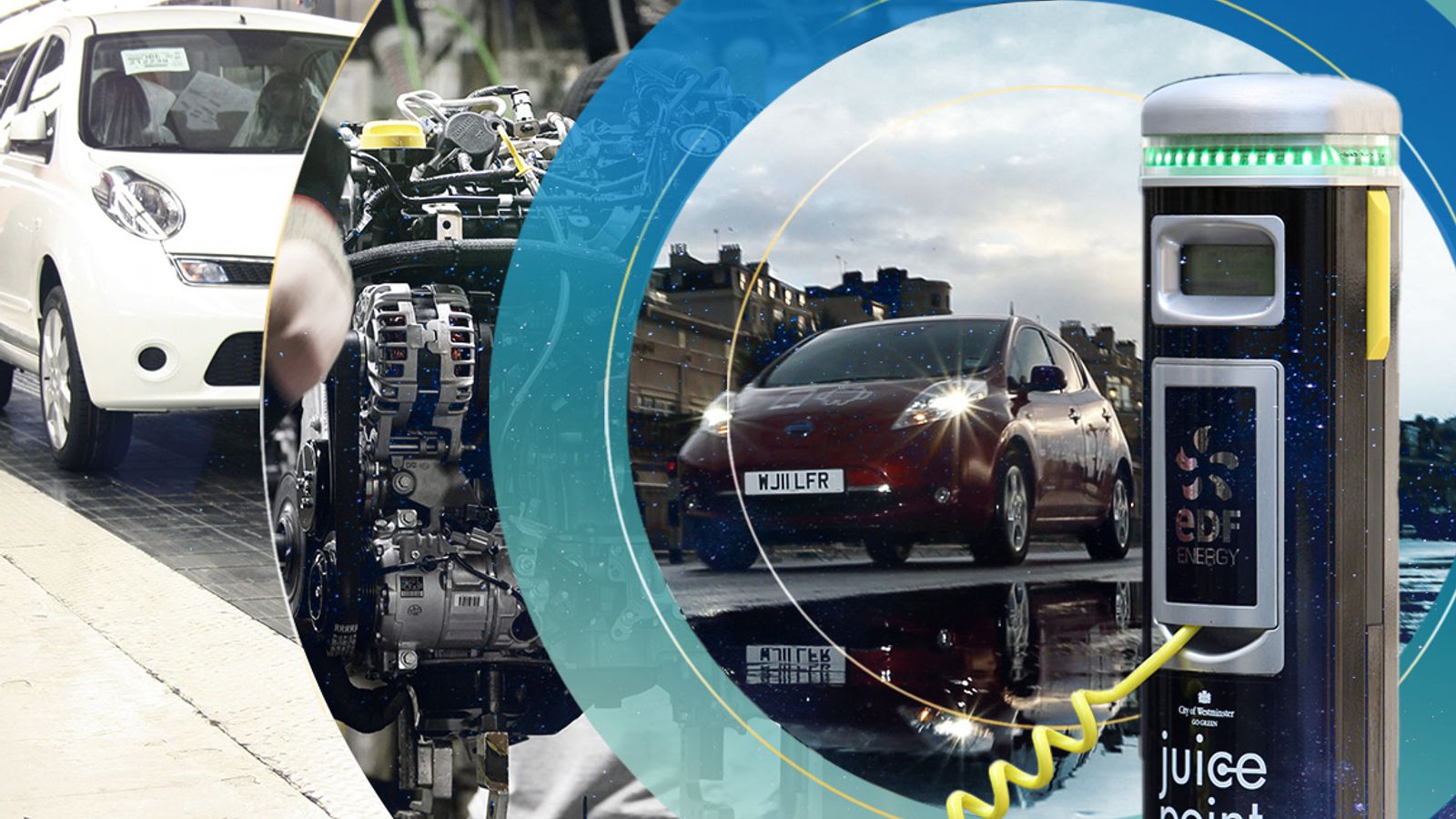Plans to ensure half of all new cars sold in the UK are fully electric by 2028 will drive down electric vehicle (EV) prices “further and faster,” experts have said.
Under Department for Transport (DfT) proposals, 22% of cars rolling off forecourts would have to be fully electric-powered from 2024, increasing to 52% of all cars by 2028. The targets for vans are 8% in 2024 and 34% in 2028.
Electric car prices could be about to plummet – here’s why
Electric vehicle (EV) prices have fallen significantly in recent years thanks to cheaper batteries and a growing market, but plans to mandate all carmakers to meet targets should “have quite a positive impact on price,” experts predict.
“More manufacturers trying to sell more EVs, trying to get us to buy them is going to be a more competitive and therefore better market for the consumer,” said Richard Allan from New AutoMotive, a research group aiming to accelerate the switch to EVs.
Economies of scale, competition and penalties for carmakers who miss targets make EVs much more affordable, he said.
The mandate is designed to accelerate the shift away from petrol and diesel vehicles, sales of which will be banned from 2030.
Electric car charging points hacked to show porn in Isle of Wight
Electric cars: Positive news for EV owners as plan to boost number of public charge points unveiled
Toll roads could be introduced to UK as electric car ownership surges
But in launching the proposals, the DfT said the Russian invasion of Ukraine had demonstrated that reliance on fossil fuels made the UK susceptible to “geopolitical issues,” and increasing the number of vehicles powered by domestic renewables was “vital for the UK’s future energy security”.
Industry body the Society of Motor Manufacturers and Traders (SMMT) warned regulation “must encourage consumers to purchase, not just compel manufacturers to produce”.
Market transformation works fastest “when mandates are matched with incentives and, for automotive electrification, we also need commensurate and binding targets for infrastructure provision,” said SMMT’s chief executive Mike Hawes.
The DfT plans to increase the number of EV charging points to 300,000 by 2030, the equivalent to almost five times the number of today’s fuel pumps.
Mr Allan said government incentives, assuming their extent would be limited by cost, should be targeted at high mileage diesel drivers.
“It’s not just about switching cars, but switching miles because it’s the miles that save the CO2,” said Mr Allan. Currently fewer than 2% of miles driven on British roads are powered electrically, he added.
Please use Chrome browser for a more accessible video player
The upfront cost of electric vehicles remains much higher than diesel or petrol equivalents. But they are far cheaper to run and so costs balance out within approximately three to four years, depending on the model and mileage, according to campaign group Transport & Environment.
The group’s director Matt Finch welcomed the targets as “more ambitious than anything in the European Union,” predicting they would “drive the price down further and faster”.
But the target of 22% by 2024 “could be much better,” he said.
Fully electric vehicles have accounted for 15.4% of new car sales so far this year. The government’s independent advisors the Climate Change Committee (CCC) recommends zero emission car sales should be 30% in 2024 and 73% in 2028, in order to meet the UK’s net zero climate commitments.
Watch the Daily Climate Show at 8.30pm Monday to Friday on Sky News, the Sky News website and app, on YouTube and Twitter.
The show investigates how global warming is changing our landscape and highlights solutions to the crisis.






















